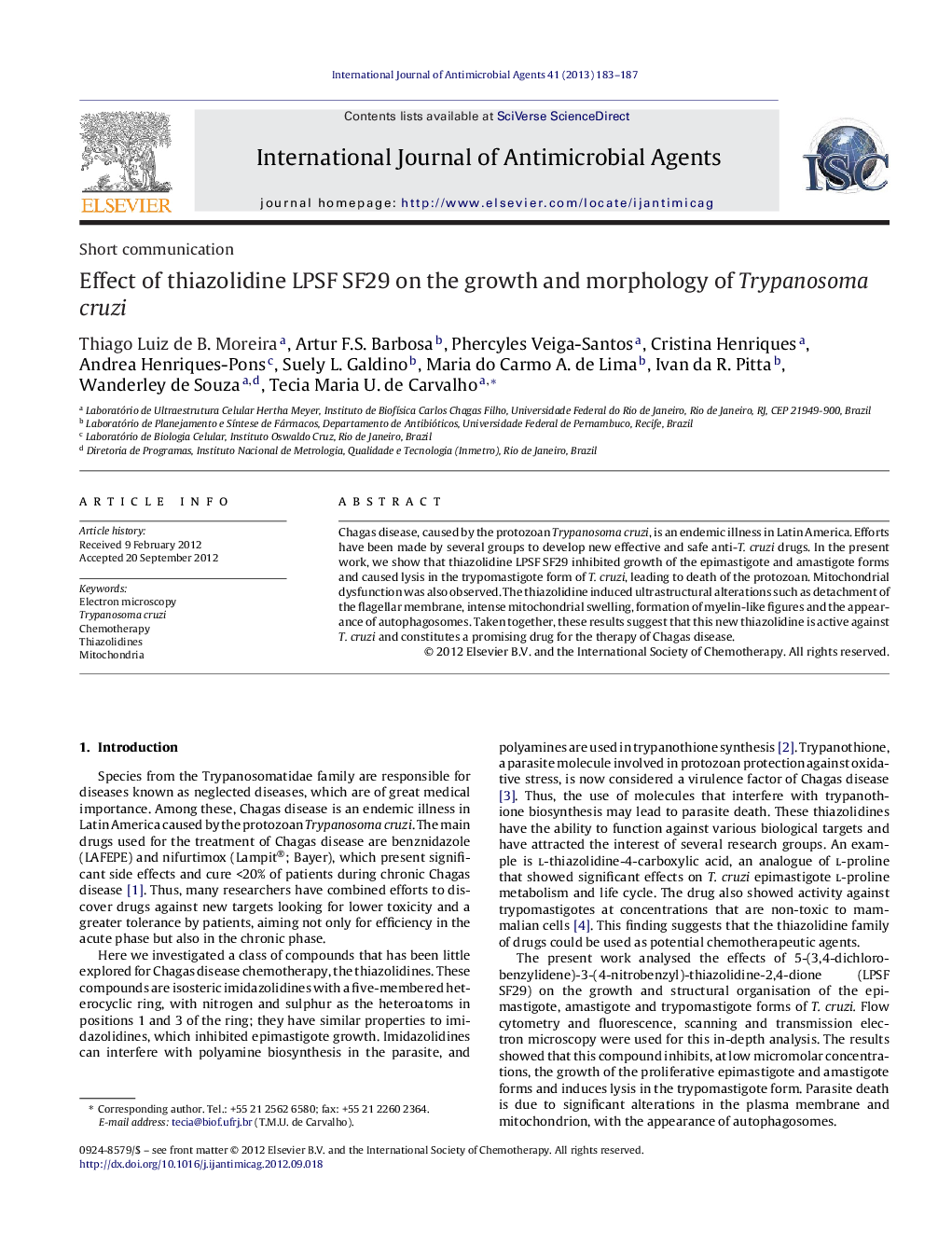| Article ID | Journal | Published Year | Pages | File Type |
|---|---|---|---|---|
| 6118016 | International Journal of Antimicrobial Agents | 2013 | 5 Pages |
Abstract
Chagas disease, caused by the protozoan Trypanosoma cruzi, is an endemic illness in Latin America. Efforts have been made by several groups to develop new effective and safe anti-T. cruzi drugs. In the present work, we show that thiazolidine LPSF SF29 inhibited growth of the epimastigote and amastigote forms and caused lysis in the trypomastigote form of T. cruzi, leading to death of the protozoan. Mitochondrial dysfunction was also observed. The thiazolidine induced ultrastructural alterations such as detachment of the flagellar membrane, intense mitochondrial swelling, formation of myelin-like figures and the appearance of autophagosomes. Taken together, these results suggest that this new thiazolidine is active against T. cruzi and constitutes a promising drug for the therapy of Chagas disease.
Related Topics
Life Sciences
Immunology and Microbiology
Applied Microbiology and Biotechnology
Authors
Thiago Luiz de B. Moreira, Artur F.S. Barbosa, Phercyles Veiga-Santos, Cristina Henriques, Andrea Henriques-Pons, Suely L. Galdino, Maria do Carmo A. de Lima, Ivan da R. Pitta, Wanderley de Souza, Tecia Maria U. de Carvalho,
